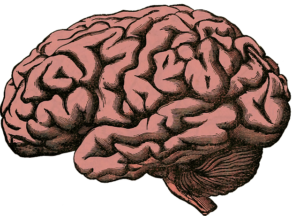Resilience is the mental weapon in the fight against CoVid-19.Here Sahen Gupta a sports psychologist at Glasgow Caledonian University discusses the 3 strategies to be mentally healthy during CoVid-19.


CoVid-19 fear has put our mind to the default setting of survival instinct. When we get into this setting, we narrow our thinking to only what is in front of us. The big picture becomes cloudy as we think only of today, not tomorrow. That is why we rushed to buy supplies when news broke out. Our rational and creative sides shrink. We forget to connect with others.


- Practice physical distancing but remain socially connected. To be medically safe and prevent infection be physically distant. But be socially in touch with one another. As human beings, our power of resilience depends on the strength of our social support. Stay in touch with your support system, help each other through the times, and you will increase resilience. Use social media responsibly, call your friends who you have lost connection to due to work pressures and spend time with your family.
- Keep calm and Reframe. It is normal to overthink and worry. It is normal to feel tightness and tension in your body. Be aware of what you are feeling so that you know what is coming up in you. Breathe in through your nose, and out through your mouth. Repeat this breathing till you can feel your heartbeat. When you can feel your heartbeat, observe your thoughts and catch them. Once you catch them, try turning thoughts around. (e.g. ‘I cannot go to work’ -> ‘Let us try working from home’ or ‘my children cannot go to school’ -> ‘I can home-school them, teach them how to cook and tell them stories I have always wanted to’). Try to take a step away from the news cycle and not be immersed in every breaking news alert. If you want to take it further, there are several apps (I recommend ‘Calm’ & ‘Head space’). Positive reframing builds resilience and allows us to cope better.
- Take Charge. Mastery and control builds resilience. To build mastery one needs to identify what they can control and what they cannot (e.g. ‘I cannot go out to play sports’ but ‘I can do sports challenges at home’). Once you have identified what you can and cannot control, focus only on things you can control. Reflect upon things you always wanted to do, but now have the time and space to do it (e.g. read that book you bought at the airport but never read, watch ‘My List’ on Netflix which you never got around to, start playing the instrument you always wanted to, get more sleep which your job did not allow you to). Having control over our actions builds environmental mastery and makes us resilient.
Begin each day by asking yourself ‘What can I do that is meaningful to me?’ and in that find your self. The three strategies build our resilience which allows us to be psychological and emotionally healthy. This reduces chances of getting physically ill. In these torrents of circumstance, let us embrace our resilience in our person hood to be healthy in our minds, our hearts and our bodies.


Sahen Gupta
Doctoral Student, Sports Psychology
Glasgow Caledonian University
Email: sahen.guptaofficial@gmail.com











